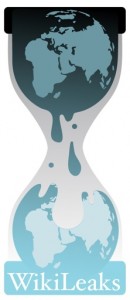
CIA’s Lost Magic Manual Resurfaces
Global warming industry becomes too big to fail
UN: fight against Congo rebels failing
More Troops to Afghanistan, But What Will They Do?
Where Has the Thrill Gone? The Harder They Fall
Phi Beta Iota: “Too Big to Fail” is industrial era idiocy. REALITY tells us that the more complex a system gets, the more it DEMANDS self-healing from the bottom-up. Feedback loops at all levels, each with their integrity intact. What all of the headlines above have in common is precisely the opposite: degraded feedback loops lacking integrity.








